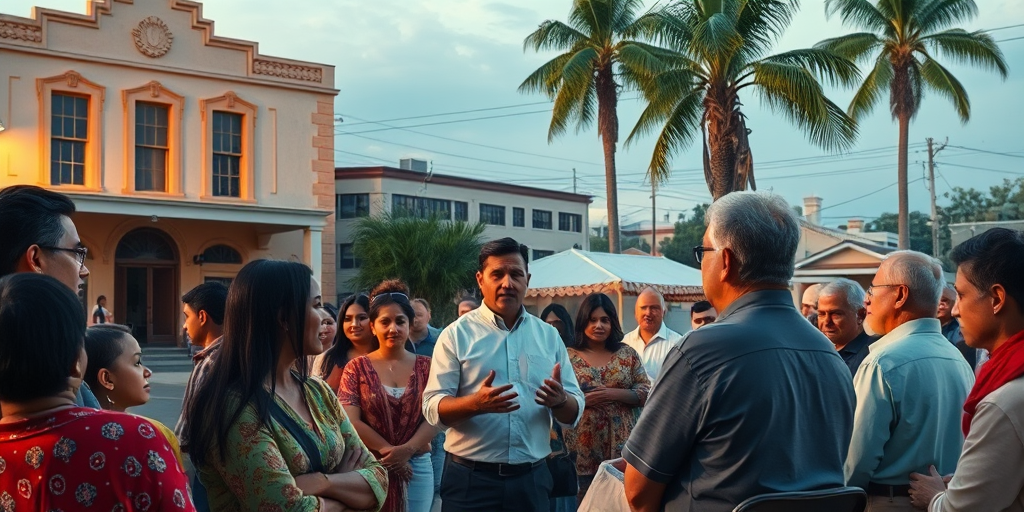Enabling JavaScript and Cookies: What It Means for the Rio Grande Valley
In an increasingly digital world, internet users in the Rio Grande Valley (RGV) are being reminded of the importance of enabling JavaScript and cookies on their web browsers. These elements are critical for enhancing user interaction with websites, providing a seamless and personalized browsing experience. As residents navigate various online services, understanding how these tools function and their impact on browsing privacy and security remains crucial.
Understanding JavaScript and Cookies
JavaScript is a scripting language that allows web developers to create dynamic, interactive features on websites. From displaying pop-up messages to loading new content without refreshing the page, JavaScript is essential for modern web browsing. Cookies, on the other hand, store user data and preferences, offering personalized experiences by remembering login details, language settings, and more.
The absence of these tools may lead to restricted website access. Disabling JavaScript or cookies can result in a frustrating user experience — websites may not display correctly, users may have trouble logging into accounts, or certain services may become inaccessible.
Local tech expert Alex Garza comments, “JavaScript and cookies are integral to how we experience the web today. Without them, users are often locked out of full functionality, which can be particularly disruptive for Valley residents relying on online services for work, education, or communication.”
Local Impact: Navigating the Risks and Rewards
In the RGV, where digital access is growing but disparities still exist, ensuring users can leverage full internet functionality is vital. For Valley residents, enabling JavaScript and cookies allows them to fully participate in digital life, from online banking and shopping to utilizing virtual learning platforms.
However, with increased web interactivity also comes potential privacy concerns. Malicious websites can exploit JavaScript and cookies to track user activity or steal information. To mitigate these risks, users are encouraged to adjust their browser settings, allowing them to manage which sites can run scripts and store cookies.
Carlos Mendez, a cybersecurity educator from South Texas College, advises, “It’s a balancing act. While enabling these features is necessary for a complete web experience, being vigilant and managing settings ensures you’re protected from potential threats.”
The Broader Context
The push towards enabling JavaScript and cookies is not isolated to the RGV. It reflects a global trend where internet users worldwide are urged to maximize their browser functionalities. This movement also intersects with ongoing discussions about digital privacy and security — issues particularly resonant in the RGV, where internet literacy is still developing.
For the Valley, where community interests often intersect with tech innovation, acknowledging these trends means staying competitive and connected on both local and global stages. Providing residents with tools to safely maximize their web usage is key to fostering tech literacy and empowerment.
Local resident Teresa Alvarez states, “As someone who’s learning more about technology later in life, understanding how to adjust browser settings gives me peace of mind about my privacy without sacrificing online access.”
Implications for the Future
Looking ahead, the ongoing evolution of internet standards and security measures presents both challenges and opportunities for the RGV. As residents become more informed and proactive about their digital habits, there is potential for this knowledge to drive further economic and educational developments in the Valley.
By fostering a tech-savvy community, local stakeholders can better position the RGV as a leader in embracing digital advancements. Such progress not only benefits individual users but can also attract tech enterprises looking for robust, adaptable markets.
Resources and Recommendations
For those seeking guidance, the RGV community offers several resources. Local libraries and community centers often host free workshops on digital literacy, where residents can learn about managing their browser settings effectively. Additionally, online tutorials and support hotlines provide accessible avenues for further learning.
In a region as vibrant and evolving as the Rio Grande Valley, embracing the digital revolution requires both awareness of the tools available and an understanding of how to use them responsibly. By enabling JavaScript and cookies and staying informed about their implications, Valley residents continue to pave the way for a digitally inclusive future.







